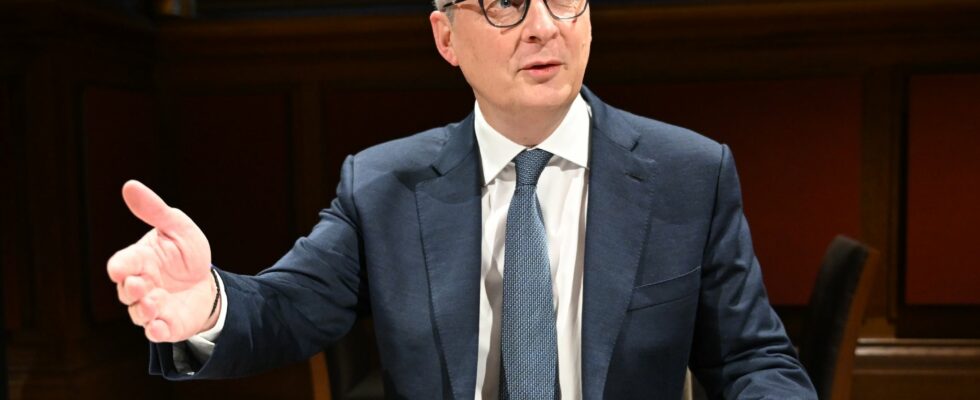How did we go from a public deficit forecast of 4.4% of GDP in 2024 to the 6.1% now expected by the end of the year? This is the crucial question the Senate Finance Committee wanted an answer to. In turn, at the end of last week, she interviewed Bruno Le Maire, Thomas Cazenave and Gabriel Attal, as part of an information mission devoted to the drift in public finances.
If he first charged Michel Barnier, believing that he had not taken the necessary measures to contain this slippage, the former Minister of the Economy – who worked five weeks to prepare this grand oral – then pointed out “a serious technical error in the evaluation of revenues for which we are paying the price”.
This is the crux of the problem. Cumulatively between 2023 and 2024, the shortfall for the State, due to this gap, amounts to more than 40 billion euros. Bruno Le Maire, who refutes any “fault”, points out without naming the Treasury services and their models, visibly disrupted by the successive crises of Covid and inflation. Above all, the ex-minister insists on the “tightness” which separated him from the Bercy forecasters, “to avoid any manipulation”.
Politics will always have the upper hand
The day before, before the Social Affairs Committee of the Senate, Pierre Moscovici, the first president of the Court of Auditors, played the fly by proposing that an impartial body, like the High Council of Public Finances – which he chairs… -, take charge of future revenue projections. A solution already proven across the Channel. Except that the independence of the magistrates of the Court of Auditors is not obvious: between Bercy and this body, the comings and goings are commonplace.
Regardless of the objectivity of the forecast, it is up to the executive to make the final decision. Even if it means assuming, then, the consequences, at the polls. The amending finance bill, which never saw the light of day in the spring, is an illustration of this. When the boss of Bercy campaigned for its implementation – rightly so, given the drift in our public finances – Emmanuel Macron decided otherwise, so as not to further undermine his camp’s European campaign. Bruno Le Maire also admitted this to the senators: “It is an eminently political subject.”
Who from the Treasury or the President made the biggest blunder? Failing to be able to summon the second, immunity required, parliamentarians risk beating around the bush for a long time.
